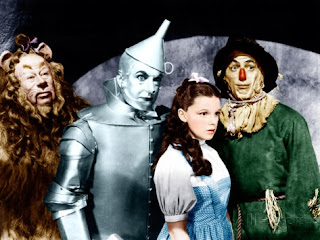Guy I'm Trying to Pick Up: Where are you from?
Me: Rock Island, Illinois.
Guy I'm Trying to Pick Up: Rockford! You must have loved The Rockford Files.
Me: I said Rock Island, not Rockford, and I've never seen The Rockford Files.
Guy I'm Not Trying to Pick Up Anymore: I knew you'd be a fan! Who wouldn't want to watch a show set in his home town?
Me: I'm from Rock Island, not Rockford, and the show was set in California. Rockford was the name of the main character.
Guy I'm Walking Away From: So when you were living in Rockford, did you ever watch them filming?
The Rockford Files aired from 1974-80, when I was in high school and a college freshman and sophomore, and had other things to do on Friday nights. I've only seen a few of the opening sequences, where an answering machine takes a crazy message for Jim Rockford:
"Hey Jim, this is Louie down at the fish market. You going to pick up these halibut or what?"
"Mr. Rockford? This is the Thomas Crown School of Dance and Contemporary Etiquette. We aren't going to call again. Now, you want these free lessons, or what?"
"This is Shirley at the bank. The answers are: no, no, and yes. No, we won't loan you money. No, we won't accept any co-signers; and yes, your account's overdrawn. I get off at 4:30."
"Jim? Nadine Arcala at the Zodiac Restaurant. You don't pay that dinner tab, we're gonna repo your birthday."
Of course, in the 1970s you knew about most programs, even if you hadn't seen them. I knew that it starred James Garner, after Move Over, Darling but before Victor/Victoria, as the pushing-50 antiheroic anti-private dick Jim Rockford, who had spent five years in prison (for a crime he didn't commit, of course), and now lived in a dilapidated trailer in Malibu and took cases for $200 per day plus expenses.
His scoobies included:
1.His con-artist dad Rocky (Noah Beery, Jr),
2. Sneaky, underhanded informant from prison Angel (Stewart Margolin, who was a fixture in 1970s sitcoms).
3. Hot cop Becker (Joe Santos)
4. His lawyer/girlfriend Beth (Gretchen Corbett).
I guess I saw enough random scenes to remember the Becker Bulge. The guy was packing.
And I did, somehow, see the episode "The House on Willis Avenue", which aired on February 24, 1978, the spring of my senior year in high school. I hadn't figured "it" out yet, but I was getting close, and Jim Rockford teaming up with a 22-year old wannabe private eye named Richie Brockelman (Dennis Dugan) set off my gaydar.
The two had major chemistry. They were even shown sleeping together.

On Friday nights in March and April 1978, Dennis Dugan spun off into his own 5-episode series, Richie Brockelman, Private Eye, but I was busy and didn't follow up. Apparently there were some buddy-bonding plotlines, Richie helping his old fraternity brother and so on.
Dennis Dugan began his career playing a gay man in the rather homophobic Norman, Is That You (1976), and ended it directing the rather homophobic I Now Pronounce You Chuck and Larry (2007). In between, he had a lot of guest roles in dramas and sitcoms, but never made it to stardom.












